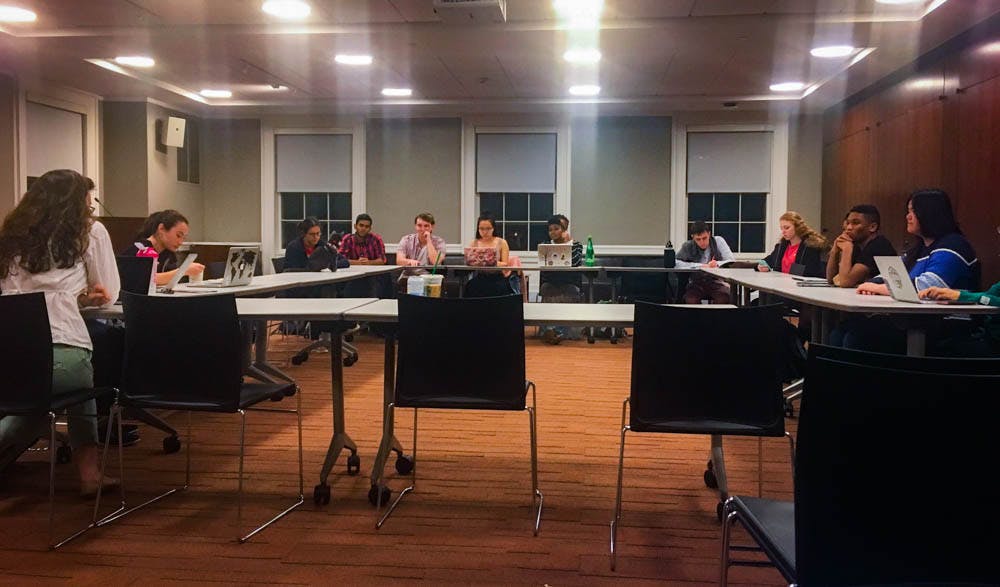The Undergraduate Council of Students held a question-and-answer session with the co-coordinators of Project LETS at its general body meeting Wednesday evening.
Project LETS provides mental health education on campus through student-run panels and workshops and runs a peer mental health advocate program with over 100 trained peer advocates who specialize in various realms of mental health, co-coordinator Yema Yang ’19 said.
“We really focus a lot on creating an inclusive community of folks with mental illness or (who) identify with experience(s) of mental illness,” Yang said.
In addition to their work with Project LETS, Yang and co-coordinator Matt Flathers ’19 are working to establish a “disability identity center” on campus, Flathers said.
“At its core, it’s a disability cultural (and) identity center that includes mental illness and includes neurodivergence and all kinds of disability,” Yang added.
The center could help create a larger support network for students on campus, Flathers said, referencing similar mental health programs at Syracuse University and Georgetown University. “There’s a large disabled community here that feels isolated a lot of the time. They don’t necessarily know how you get the help you need.”
In a recent meeting with administrators, Yang and Flathers discussed creating the center and also implementing changes at the curricular level.
This could mean “expanding disability studies within Brown” and “bringing in speakers to talk about disability studies,” Yang said.
In response to a question from a general body member about combating mental health and disability stigma on campus, Flathers and Yang stressed the importance of learning how to support and respond to someone experiencing a mental health crisis.
“A lot of that (support) centers around trying to communicate with the person, … being present with the person and less of ‘I need to call 911 right now’ or any other of (what) the immediate responses tend to be,” Flathers said.
UCS President Chelse-Amoy Steele ’18 said that the UCS Campus of Consent bill could include provisions to implement training that concerns how best to respond to mental health crises. The proposed bill requires that Category III student groups participate in training to prevent interpersonal harm within their organizations.
“I think that this could be a really valuable inclusion to have within that model,” Steele said.
The general body also discussed applications to its elections board. Members of the board coordinate logistics for UCS elections and work to investigate and prevent violations of the UCS Elections Code, said Katie Barry ’19, the board’s co-chair.
Next Wednesday, the general body will vote on amendments to the Campus of Consent bill, which members have discussed at two meetings this semester, Steele said.





